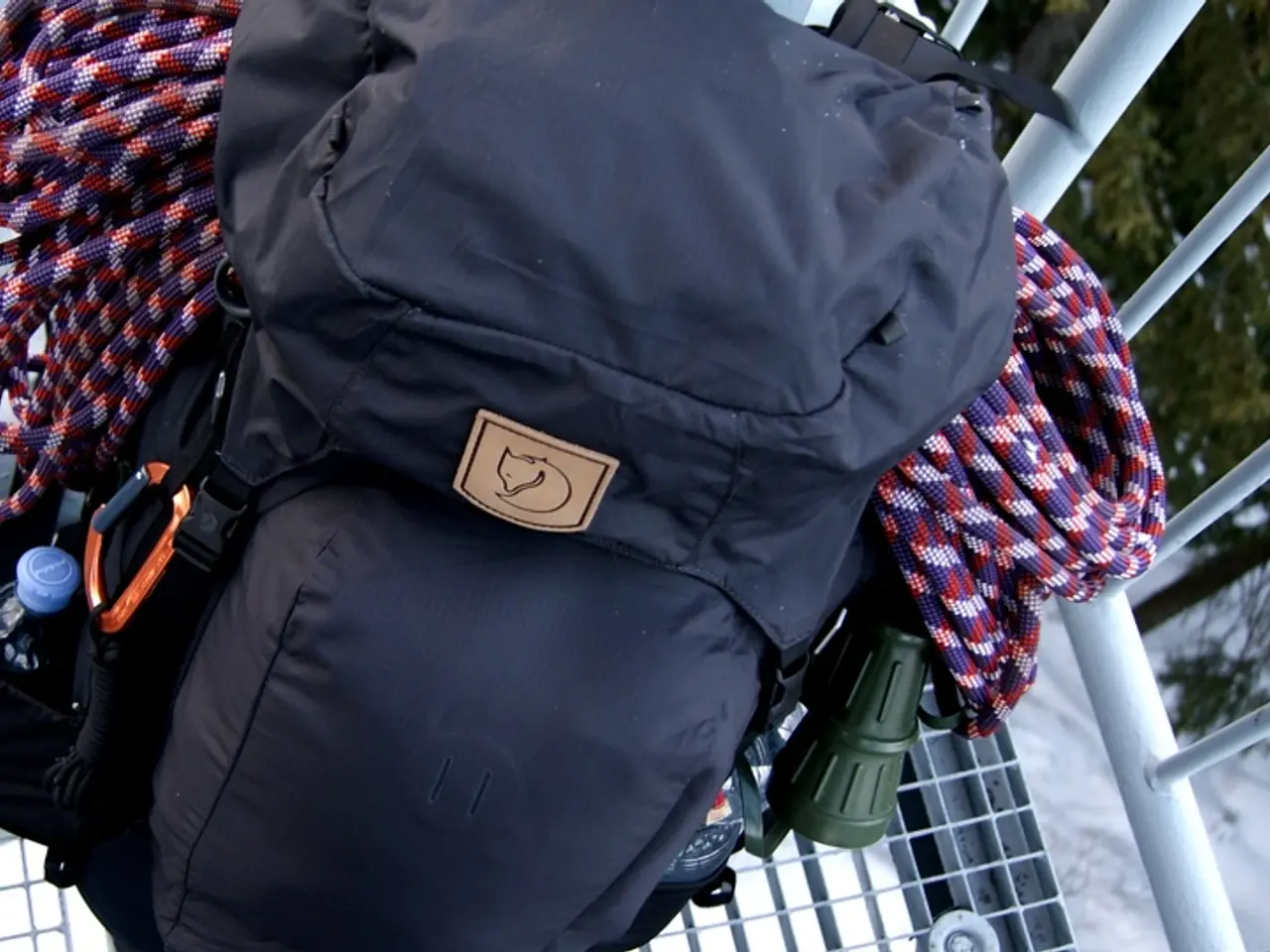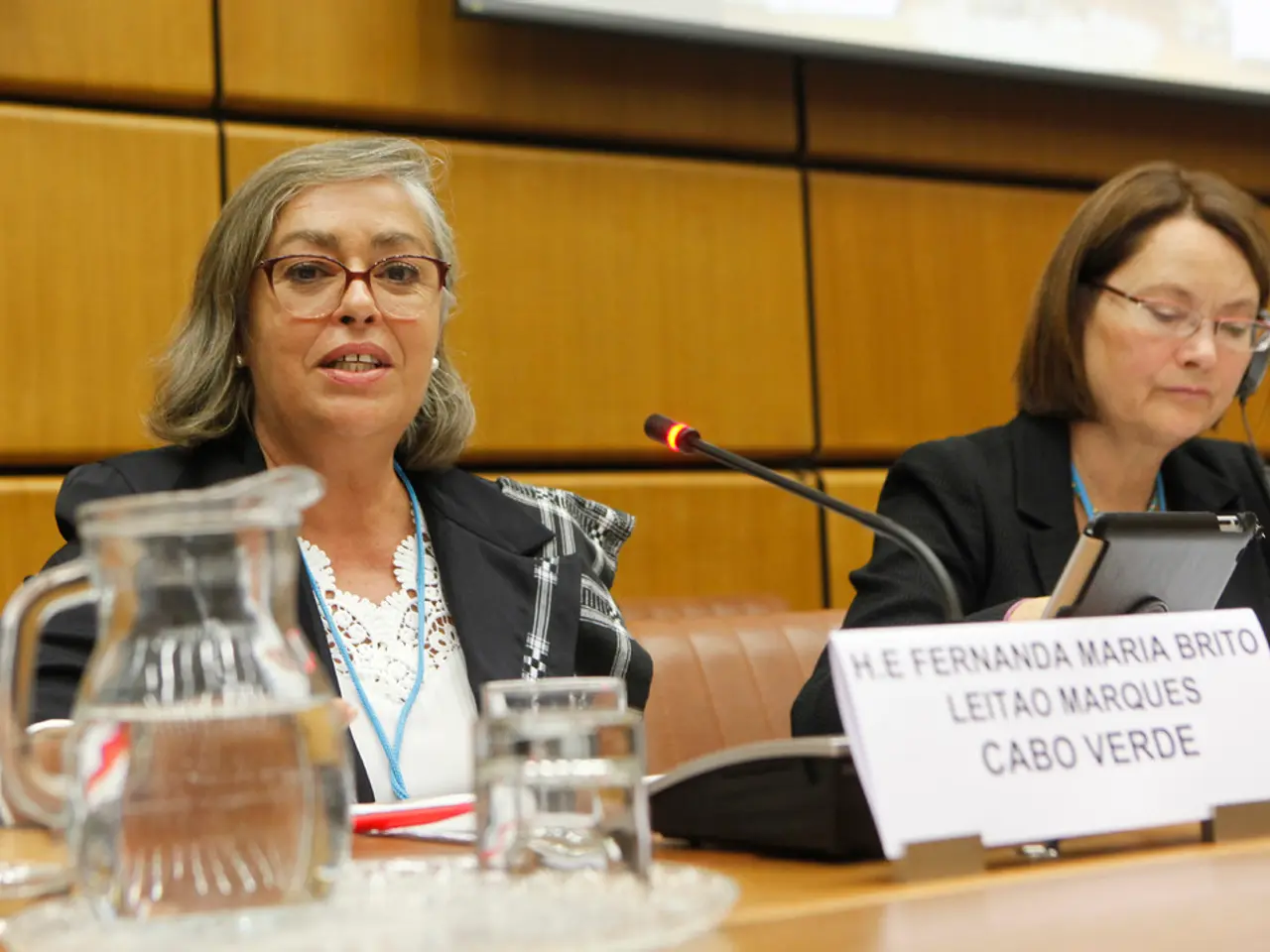Strict regulations demanded for in-game loot boxes within online gaming platforms by Lower Saxony.
The Lower Saxony State Parliament has called for stricter regulation of gambling-like features in video games like EAFC, following the approval of the SPD, Greens, and CDU. The AfD abstained from voting.
Games with mechanics that resemble gambling, like loot boxes, are under the spotlight in regulatory discussions. ** Image Credit: Sameboat/wikipedia**
Legislative Push for Tougher Gambling-Like Game Regulation
As per reports from Süddeutsche Zeitung, the Lower Saxony parliament is advocating for stricter online gaming regulations, particularly for games containing gambling-like mechanisms. Particular concern lies with loot boxes, in which players purchase virtual packages without knowing the contents, a practice that potentially encourages excessive spending by children and young adults.
"It's akin to a gateway to gambling - buying something without knowing what you're getting." - Miriam Staudte, German Consumer Protection Minister, Süddeutsche Zeitung
Consumer Protection Minister Miriam Staudte warned that these mechanisms create a propensity for minors and young people to spend money repeatedly to progress in the game or obtain better content.
Advocating for Age Restrictions, Transparency, and Labeling
In response to the SPD and Greens' requests, the State Parliament intends to advocate for stricter regulations at the EU level. In addition to labeling addictive elements and a possible age rating of 18 for games with loot boxes, the Parliament seeks to ensure a transparent pricing structure. With many games utilizing virtual currencies that obscure the actual financial cost, more transparency would help prevent deceptive practices.
Several popular games like FIFA's successor EAFC received an initial age rating of 12 for their latest edition. The Higher Regional Court of Vienna (OLG Wien) in Austria, however, deemed loot boxes in EA's FIFA games as non-gambling, reversing a previous ruling.
In Belgium, developers of games like Overwatch and CS:GO had to modify their monetization strategies. With League of Legends by publisher Riot Games potentially next in line.
The resolution was supported by the SPD, Greens, and CDU in the State Parliament, while the AfD held back. The motion does not hold immediate legal consequences but serves as a basis for a broader, nationwide, and EU-wide discussion. Supporters see loot boxes as a potentially harmful gateway to gambling and argue for more protective measures for consumers and young people.
Conference Examining the Loot Box Conundrum
It remains uncertain whether loot boxes should be legally categorized as real gambling in Germany, with Lower Saxony and Bremen pushing for stricter rules and the federal government maintaining a cautious stance. To shed light on the issue, a conference organized by gluecksspielwesen.de will take place on March 6, 2025 from 10:00 to 12:00. Participating experts include Richard Eibl (Patronus), Thore Güldner (SPD Lower Saxony), Dariush Hassanpour (The Left Bremen), Prof. Dr. Martin Maties (University of Augsburg), and Elisabeth Secker (USK), among others. The event will provide insights on regulatory approaches and responsibility Moderated by Robert Hess (Government Mirror Group), interested parties can attend the webinar for free here.
Loot boxes have received considerable attention from consumer advocates and players alike in recent years. Celebrity gamer Trymacs (30), known for his streams on YouTube and Twitch, has previously criticized pay-to-win mechanics in EA Sports FC25, characterizing loot boxes found in the Ultimate Team mode as illegal gambling.
Enrichment Data:In the European Union, debate on the legal status and regulation of loot boxes and in-game purchases is ongoing. Key players in this conversation include the Consumer Protection Cooperation Network (CPCN), which has established non-binding principles targeting virtual currencies, dark patterns, and opaque monetization practices, as well as the EU Court of Justice. In March 2025, a conference in Germany is set to address the subject from various perspectives to help shape the regulatory landscape. Until legal decisions are made, compliance with the CPCN principles is recommended for minimizing legal exposure.
- In the regulatory discussion over gaming mechanisms resembling gambling, loot boxes, such as those in EAFC, are under intense scrutiny due to their potential to encourage excessive spending by children and young adults, much like a gateway to actual gambling.
- To mitigate these concerns, the Lower Saxony State Parliament is advocating for stricter regulations, not only at the state level but also at the EU level. They intend to push for age restrictions, transparent pricing, labeling of addictive elements, and possibly an age rating of 18 for games containing loot boxes.
- This push for stricter regulation has garnered support from the SPD, Greens, and CDU in the State Parliament, while the AfD abstained from voting. A conference organized by gluecksspielwesen.de on March 6, 2025, will provide insights on regulatory approaches and responsibilities regarding loot boxes.
- Loot boxes have sparked debate in the European Union, with the Consumer Protection Cooperation Network (CPCN) and the EU Court of Justice among the key players discussing the legal status and regulation of these virtual packages. Until legal decisions are made, compliance with the CPCN principles is recommended to minimize legal exposure.




